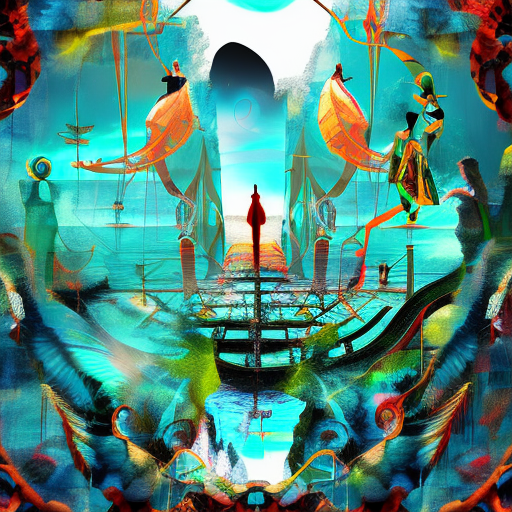One-line summary:
Ulysses is a complex and experimental novel that follows the lives of Leopold Bloom and Stephen Dedalus over the course of a single day in Dublin, exploring themes of identity, sexuality, and the human condition.
The Odyssey Reimagined
Ulysses, written by James Joyce and published in 1922, is a modernist masterpiece that reimagines Homer’s epic poem, The Odyssey, in the context of early 20th-century Dublin. The novel takes place on June 16, 1904, and follows the lives of Leopold Bloom, a Jewish advertisement salesman, and Stephen Dedalus, a young writer and Joyce’s alter ego.
Throughout the novel, Joyce experiments with various narrative styles and techniques, including stream-of-consciousness, interior monologue, and parodies of different literary styles. The story is divided into 18 episodes, each representing a different hour of the day, and the perspectives shift between the two main characters and other minor characters they encounter.
A Day in Dublin
Ulysses begins with Stephen Dedalus, a young intellectual struggling with his identity and his relationship with his father. As the day progresses, Stephen wanders through Dublin, contemplating his place in the world and his artistic aspirations. He encounters various characters, including Buck Mulligan, a boisterous friend, and the mysterious figure of Haines.
Meanwhile, Leopold Bloom, a middle-aged man of Jewish descent, goes about his daily routine. Bloom’s wife, Molly, is having an affair, and he suspects her infidelity. As Bloom navigates the city, he interacts with different individuals, such as his friend and nationalist, Martin Cunningham, and Gerty MacDowell, a young woman he encounters at the beach.
As the day unfolds, Bloom and Stephen’s paths eventually cross, and they engage in a series of conversations and encounters that reveal their inner thoughts, desires, and fears. The novel delves into themes of sexuality, religion, nationalism, and the nature of consciousness, challenging conventional narrative structures and pushing the boundaries of literary form.
The Human Condition
Ulysses is not a book that can be easily summarized, as its richness lies in its intricate layers of meaning and its exploration of the human condition. Joyce delves deep into the minds of his characters, exposing their vulnerabilities, desires, and flaws. The novel tackles themes such as:
Identity and self-discovery: Both Bloom and Stephen struggle with their identities and search for meaning and purpose in their lives. They question societal norms and grapple with their own sense of self.
Sexuality and desire: Joyce explores the complexities of human sexuality, portraying various sexual encounters and desires throughout the novel. He challenges societal taboos and conventions, presenting a frank and honest portrayal of human desire.
Nationalism and politics: Ulysses takes place during a time of political unrest in Ireland, and Joyce incorporates elements of Irish nationalism and political debates into the narrative. The characters’ interactions reflect the tensions and divisions within Irish society at the time.
4. Mortality and the passage of time: The novel is permeated with a sense of mortality and the fleeting nature of life. Through the use of various literary techniques, Joyce captures the essence of human existence and the universal experience of time passing.
In conclusion, Ulysses is a challenging and complex novel that defies traditional narrative conventions. It is a work of art that explores the depths of the human psyche and offers profound insights into the human condition. Joyce’s innovative use of language and his exploration of themes such as identity, sexuality, and mortality continue to captivate readers and make Ulysses a timeless classic.
“I will tell you what I will do and what I will not do. I will not serve that in which I no longer believe, whether it call itself my home, my fatherland, or my church: and I will try to express myself in some mode of life or art as freely as I can and as wholly as I can, using for my defence the only arms I allow myself to use—silence, exile, and cunning.”












